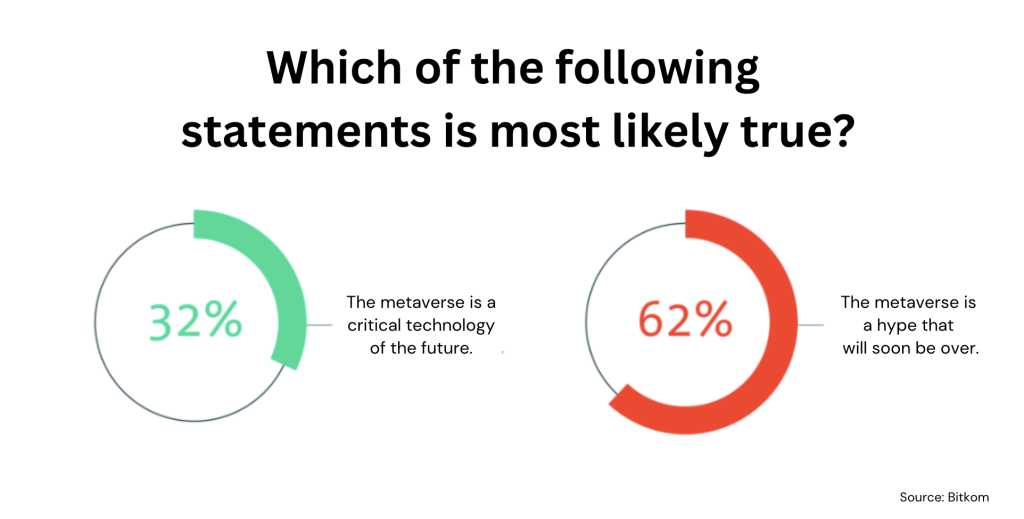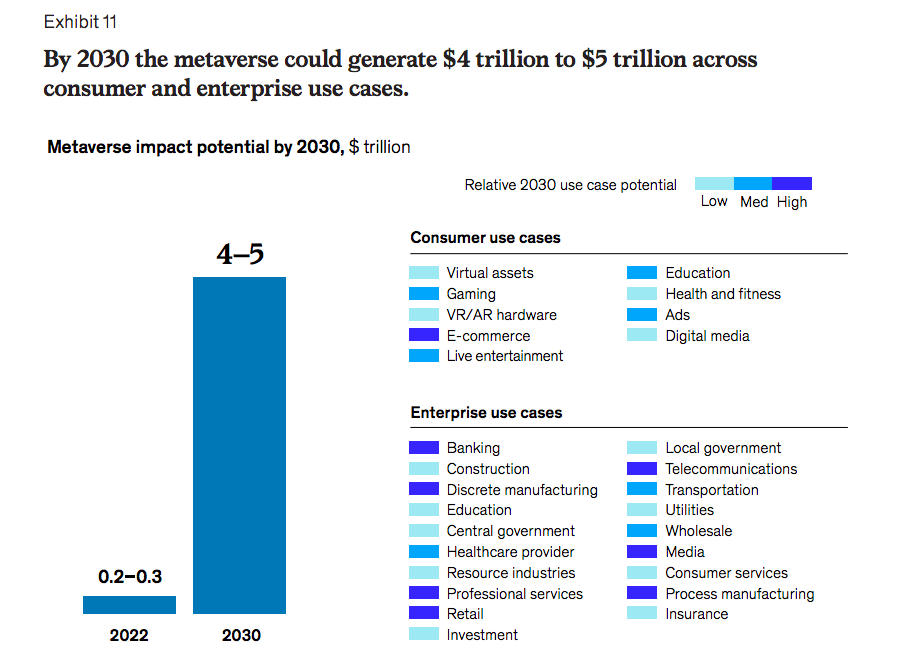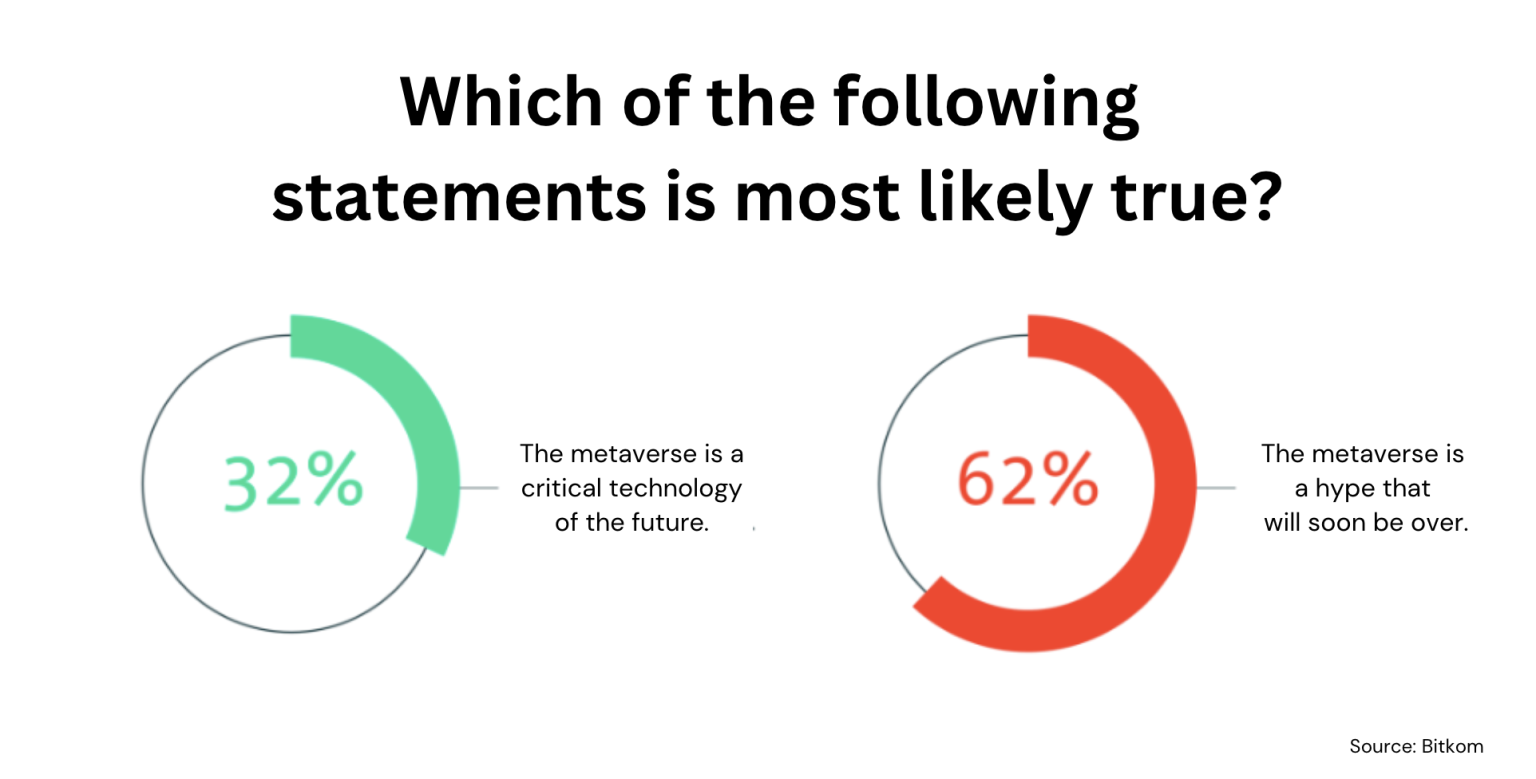Last updated:
 Why Trust Cryptonews
Why Trust Cryptonews

The metaverse, once a realm of science fiction, is rapidly becoming a reality for businesses. A new survey conducted by Bitkom, Germany’s digital association, among 605 companies with 20 or more employees, reveals that a third of German firms believe the metaverse is a critical technology for their future.

Optimism and Skepticism Coexist
However, the path to widespread adoption is still fraught with challenges.
While 32% of companies surveyed view the metaverse as a critical technology for their future, a significant 62% believe it is merely a passing trend. Despite this, there is a growing recognition of the metaverse’s potential across various industries, with gaming (74%), tourism (60%), media and entertainment (54%), and IT sectors (52%) leading the chart.
However, the path to widespread adoption is hindered by several challenges. Nearly half (47%) see the metaverse as irrelevant and don’t expect it to become important. Only 13% of companies have already explored metaverse technologies, and although current investment is low, a promising 22% anticipate investing in the metaverse after 2025. A lack of practical applications, technological immaturity, regulatory uncertainties, and a shortage of skilled talent are major obstacles to overcome.
“The metaverse is a double-edged sword,” said Bernhard Rohleder, Bitkom CEO. “On one hand, it presents immense opportunities for innovation, efficiency, and new business models. On the other, it’s a complex and rapidly evolving landscape that can be overwhelming for many companies.”
“A Wait-and-See Approach is Not a Strategy”
While only a few companies have explored the metaverse thus far, this number has more than doubled in the past two years, rising from 6% to 13%.
However, the metaverse remains “massively underestimated,” according to Rohleder, who also urged companies to “seriously consider its potential benefits for their own company” if they believe it to be a crucial future technology.
“A wait-and-see approach is not a strategy. German companies should explore potential applications and closely monitor further technological developments.”
Since coming to prominence in 2021, the metaverse market has experienced explosive growth, surging from $478.8 billion in 2020 to an estimated $650 billion in 2022. It is projected to hit $783.3 billion by 2024. According to a McKinsey report, by 2030, it could exceed $5 trillion.

Large technology companies are actively exploring the metaverse. Facebook’s rebranding to Meta is the most prominent example. However, other significant moves include Microsoft’s proposed acquisition of Activision Blizzard, Nvidia’s Omniverse platform, Sony‘s PlayStation VR2 headset. We can also add Apple’s Vision Pro, a “mixed reality” headset, allowing support for both virtual and augmented reality (AR) content.
Meanwhile, German company Siemens is leading the way in using the metaverse for industrial purposes. The technology conglomerate combines advanced technology like virtual reality (VR), artificial intelligence (AI) and cloud computing to create virtual factories and product designs. A notable development is Siemens’ partnership with Sony aimed at introducing a new immersive engineering solution that combines Sony’s head-mounted display with Siemens’ Xcelerator software.
















